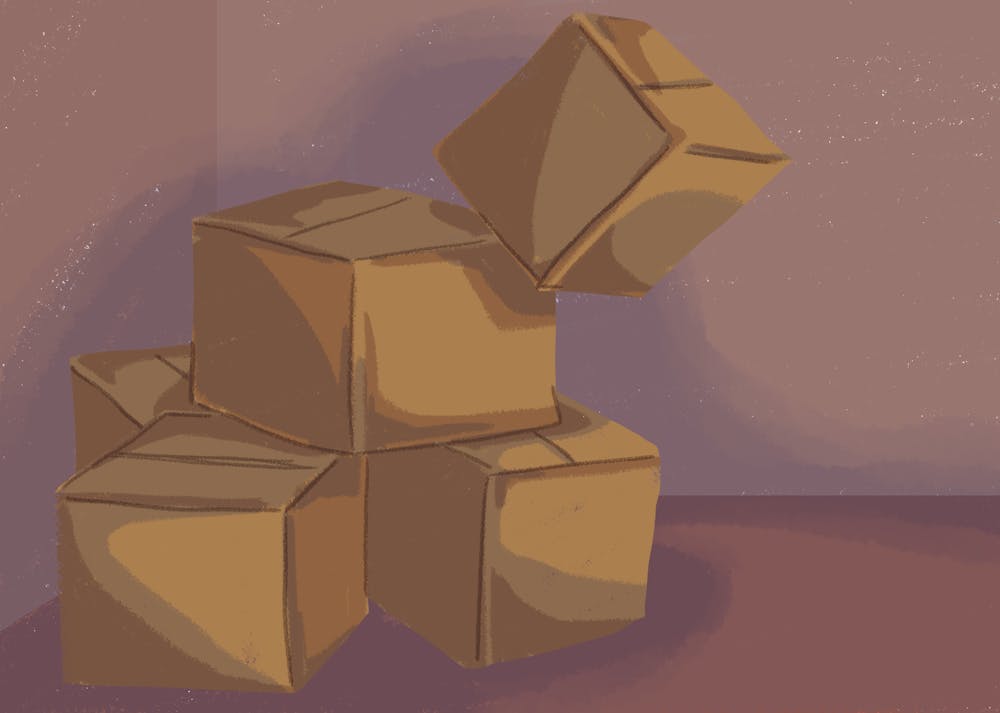Global supply chains have been disrupted due to the COVID-19 pandemic, which has driven inflation and raised costs of gas, groceries and consumer products.
Labor shortages and a lack of storage space at ports, including the Port of Los Angeles, have kept thousands of products from being unloaded from waiting ships. As winter holidays approach, American consumers may face shortages in goods ranging from tech products to toys.
Jamon Hill, ASU's executive director of supply chain, said in an email there have been discussions within the University staff on how to meet the supply chain disruption.
"My team has been in discussions with departments all across ASU to discuss materials that may be impacted to see what our options are to strengthen our supply chain position," Hill said in the email. "Many people may not realize that we have our own inventory, warehouse and logistics network within ASU, so we have been buying and storing products that have potential market constraints since the early months of the pandemic."
READ MORE: How ASU secured COVID-19 testing materials, personal protective equipment
Thomas Kull, a research professor from ASU's Department of Supply Chain Management at the W.P. Carey School of Business, said students could expect to see shortages in a wide range of products they rely on, such as paper products, computer chips and imported foods.
"Students should realize that they'll be asked to use alternatives," Kull said. "So e-textbooks, everything submitted electronically, doing DocuSign. You'll be asked to use those types of services to avoid the paper problem, but then you have the computer chip problem, so the electronic services that allow you to shift away from paper then become problematic."
Hill said ASU is prepared to meet any disruption in supply chains.
"Consumer-grade items such as office supplies, some food items and paper products are in flux, but we have stock of many of these items and alternative versions available for things that may become more constrained," Hill said in the email.
Michelle Zhao, a senior majoring in supply chain management and business data analytics who serves as vice president of professional development for the W.P. Carey Business School Council said she was concerned about inflation driven by the supply chain disruption.
"I'm graduating next year and I'm about to be independent financially. I got to figure everything out. So, I do wonder sometimes how these disruptions are going to play a part in that," Zhao said.
Rising shipping costs, COVID-19 outbreaks in overseas factories and a pandemic-driven increase in American consumerism contributed to the supply chain disruption.
Yimin Wang, an associate professor from the Department of Supply Chain Management, said his classes have been analyzing blockages at the Port of Los Angeles. Wang said the lack of a reliable workforce during the COVID-19 pandemic has been the main cause of the supply chain disruption, affecting every aspect of product distribution, from manufacturing to shipping and sales.
"(COVID-19) creates a kind of cascading domino effect," Wang said. "Because of the (COVID-19) testing and remote work requirements, you have a severe labor shortage."
Adegoke Oke, a professor from the Department of Supply Chain Management, said supply chains are especially vulnerable because many American companies rely on overseas factories and that demand must be reduced for the supply chain disruption to end.
"We can talk about reducing the vulnerability of the supply chain. One way of doing that is by doing what we are now referring to as deglobalization. i.e. bring part of the supply chain closer to home," Oke said in an email. "This is not the time to focus on wants but really to focus on needs."
U.S. Treasury Secretary Janet Yellen warned the supply chain disruption could last until the middle of 2022.
Kull said Yellen's timeline prediction may be off, especially since demand will rise as Christmas approaches.
"I think probably late 2022 to 2023," Kull said.
Kevin Dooley, a professor from the Department of Supply Chain Management, said the supply chain disruption will get worse before it gets better.
"The disruption will worsen simply because it's made worse as demand increases; and people in the US have both pent-up demand and its buying season," Dooley said in an email.
President Joe Biden has been criticized by Republicans in Congress for his handling of the supply chain disruption. One business group claimed President Biden’s federal vaccine mandate could exacerbate supply chain issues by requiring businesses to fire unvaccinated workers. However, fact-checkers say the supply chain crisis is driven mainly by market forces outside of the president's control.
"All supply chains, they cut across jurisdictions, they cut across countries, and no one government could fix a supply chain. And no one government can cause supply chain problems," Kull said. "But the government can influence it."
President Biden indicated he was considering deploying the National Guard to offload ships in an attempt to lessen the severity of the supply chain disruption. Although Kull and Wang said this effort could help with the supply chain disruption, they agreed it wouldn’t solve the problem and that consumers must be prepared to alter spending habits.
Hill said ASU would continue to function normally despite the supply chain issues.
"There will certainly be items that are difficult to get that we may decide to go with an alternative version that be more readily available," Hill said in the email. "Ultimately, though, our number one priority is making sure there are no disruptions in any of our operations, and at this time we have no expectation that will happen."
Reach the reporter at mphughe3@asu.edu and follow @MasonHu29413328 on Twitter.
Like The State Press on Facebook and follow @statepress on Twitter.
Continue supporting student journalism and donate to The State Press today.




